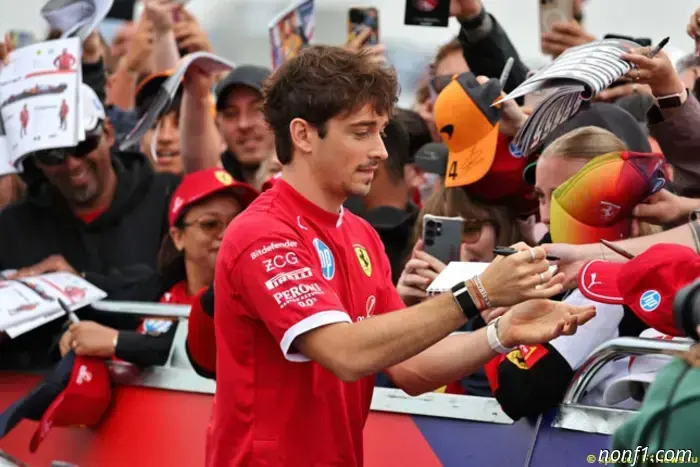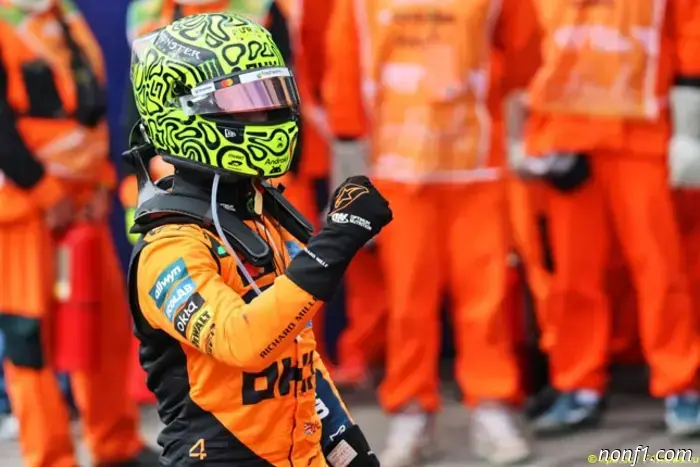
Daniil Kvyat is still faster than a driverless car.
Yesterday at the Yas Marina Circuit in Abu Dhabi a demonstration run took place in which the organizers showed the public the progress made in artificial intelligence applied to motorsport.
We have reported on the Abu Dhabi Autonomous Racing League (A2RL), including that Daniil Kvyat, a former Formula 1 driver who has recently been competing in endurance racing, is collaborating with it. A2RL's driverless cars are Dallara SF23s, similar to those used in Japan's Super Formula series, but modified and equipped with additional hardware to suit the series' specifics.
On Saturday there was a run featuring two cars with identical capabilities; one was driven by Daniil, while the other was controlled autonomously by AI. The latter crossed the finish line one and a half seconds earlier, although the experienced professional recorded a higher top speed — but there's something to explain here.
The cars for the demonstration were provided by TUM, one of the top teams in A2RL, and after the run Professor Markus Linkamp, its head, explained to the press: "We were ahead, but Daniil tried to close the gap and at first he was clearly faster. But we're already at a comparable level, and the difference is just over a second. The aim of the demonstration was to show how fast driverless cars can be compared with a professional Formula 1 driver."
As the local newspaper Khaleej Times writes, Kvyat started 10 seconds after the car piloted by the "robot", gradually caught up with it and by the final lap had reduced the gap to one and a half seconds.
Linkamp went on to recall that under Formula 1 qualifying rules a driver is allowed to start if they have lapped within 7% of the pole time: "Seven percent would be equal to four seconds, and we were only one and a half seconds slower. And our result would have been enough to make the cut."
Last year the TUM team (an abbreviation of the Technical University of Munich) won the autonomous car race in Abu Dhabi and is striving to prove that AI is increasingly closing the gap with humans on the racetrack.
"We changed a lot in our code, made a new controller and put a lot of effort into improving the AI's overtaking behavior," Linkamp added. "Because during the race we are not allowed to do anything. We must not interfere with anything, must not touch the keyboard at all. Today's result was preceded by a five-year preparation program."
The speed of TUM's car impressed engineers from the rival Japanese team TGM.
"The human driver was closing the gap and driving faster, but the autonomous car was also very fast!" stated Kohei Aoyama, TGM's technical director.

Other articles
 Development of the 2026 Audi F1 car has already ceased, with the team now concentrating on the 2027 and 2028 models.
Audi's new F1 drivetrain has yet to complete a lap on a track, but more than 400 engineers are already diligently working to enhance it for upcoming seasons.
Development of the 2026 Audi F1 car has already ceased, with the team now concentrating on the 2027 and 2028 models.
Audi's new F1 drivetrain has yet to complete a lap on a track, but more than 400 engineers are already diligently working to enhance it for upcoming seasons.
 Las Vegas Grand Prix: Preliminary Weather Forecast
The preliminary forecast for the Las Vegas Grand Prix calls for dry and cold weather during the race weekend.
Las Vegas Grand Prix: Preliminary Weather Forecast
The preliminary forecast for the Las Vegas Grand Prix calls for dry and cold weather during the race weekend.
 Las Vegas Grand Prix: Prediction Contest Stage
We are still accepting predictions for the Las Vegas Grand Prix results in our contest.
Las Vegas Grand Prix: Prediction Contest Stage
We are still accepting predictions for the Las Vegas Grand Prix results in our contest.
 Herbert: Lewis and Charles get straight to the point; it's their job.
Johnny Herbert, like several other experts, believes that Ferrari’s president was wrong when he said that Lewis Hamilton and Charles Leclerc should focus more on driving and talk less.
Herbert: Lewis and Charles get straight to the point; it's their job.
Johnny Herbert, like several other experts, believes that Ferrari’s president was wrong when he said that Lewis Hamilton and Charles Leclerc should focus more on driving and talk less.
 Las Vegas Grand Prix: Betting Odds
Bookmakers have released the betting odds for victory in the upcoming Las Vegas Grand Prix.
Las Vegas Grand Prix: Betting Odds
Bookmakers have released the betting odds for victory in the upcoming Las Vegas Grand Prix.
 Dreyer: We are deliberately copying our opponents' approaches
Audi continues to prepare intensively for its debut season in Formula 1, fully aware that it promises to be difficult...
Dreyer: We are deliberately copying our opponents' approaches
Audi continues to prepare intensively for its debut season in Formula 1, fully aware that it promises to be difficult...
Daniil Kvyat is still faster than a driverless car.
A demonstration run was held at the Yas Marina circuit, during which the organizers showcased to the public the progress made in artificial intelligence applied to motorsport...
